The document provides an overview of input/output functions in C programming, including both formatted and unformatted I/O functions. Key functions such as printf(), scanf(), sprintf(), and sscanf() are detailed, along with their usage and examples. Additionally, it discusses command line arguments and their handling in the main function.
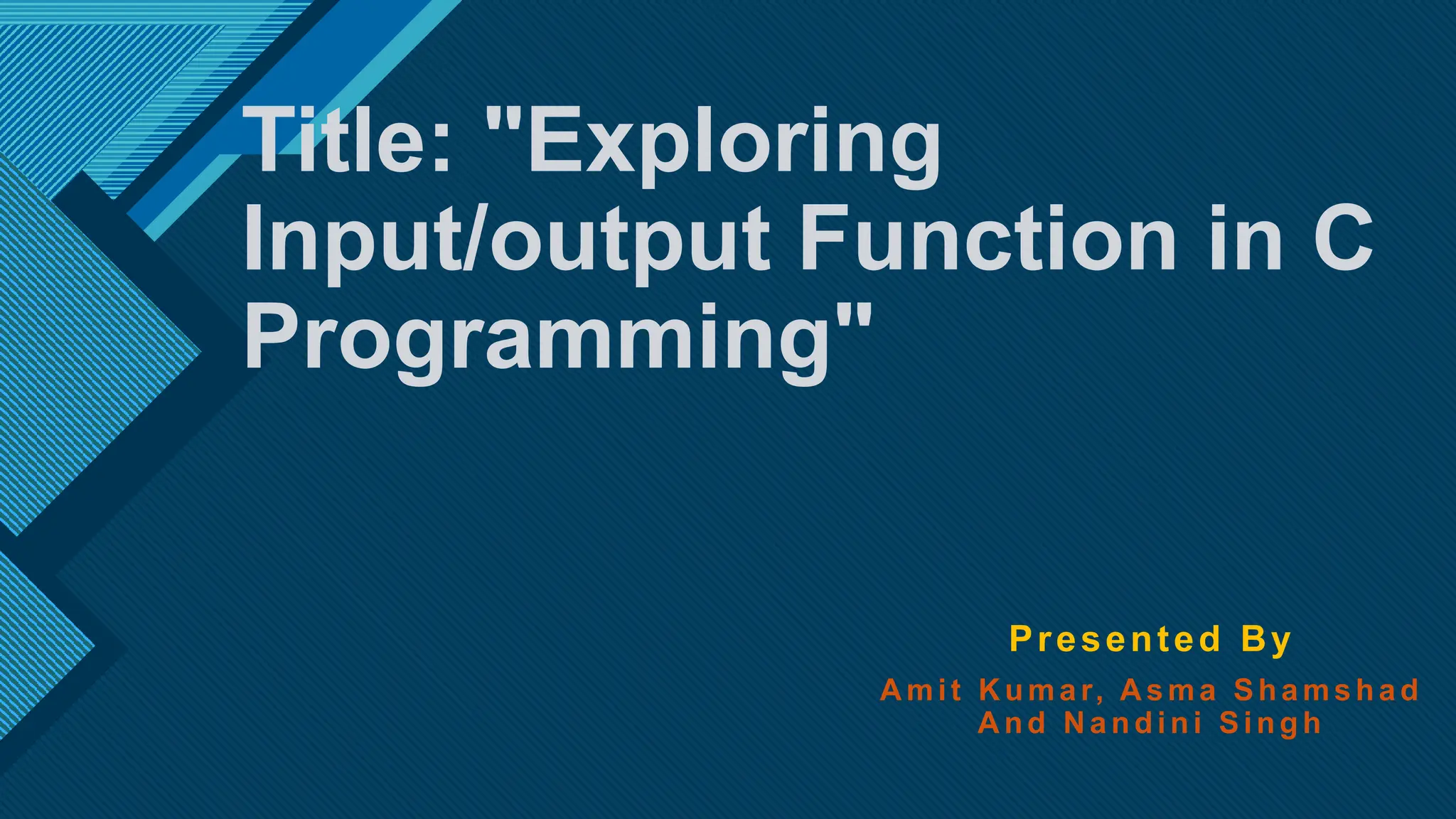
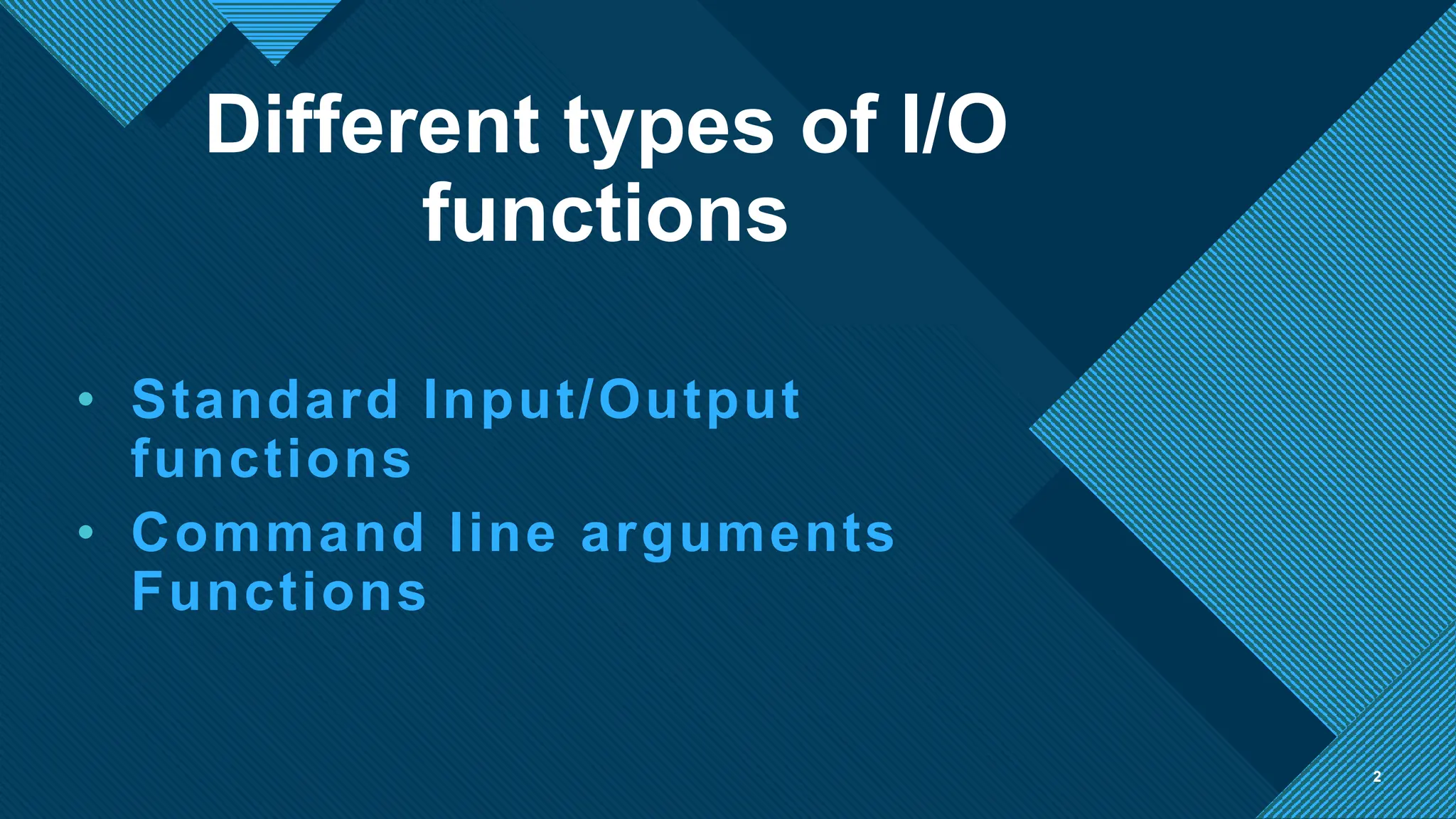
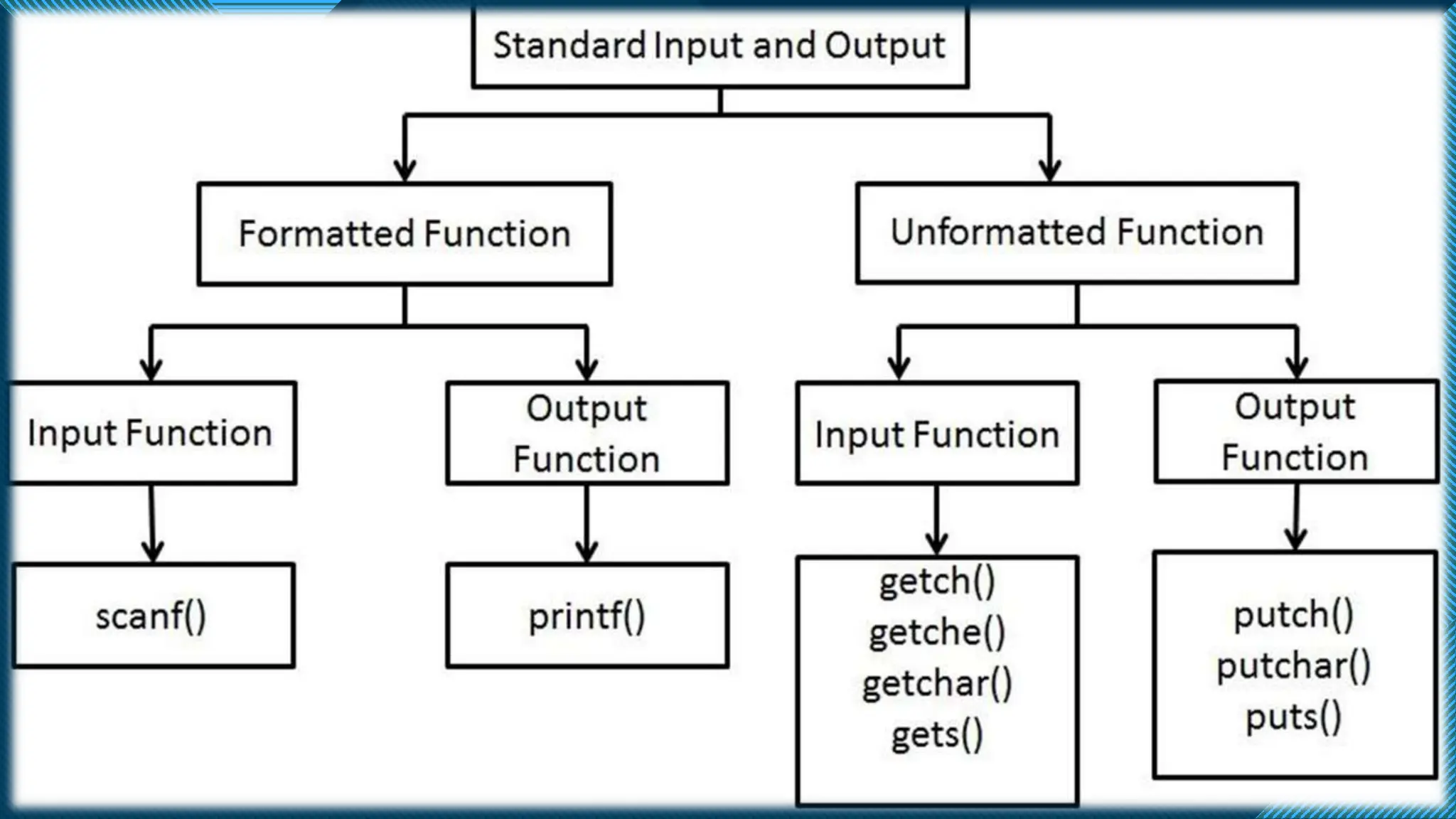
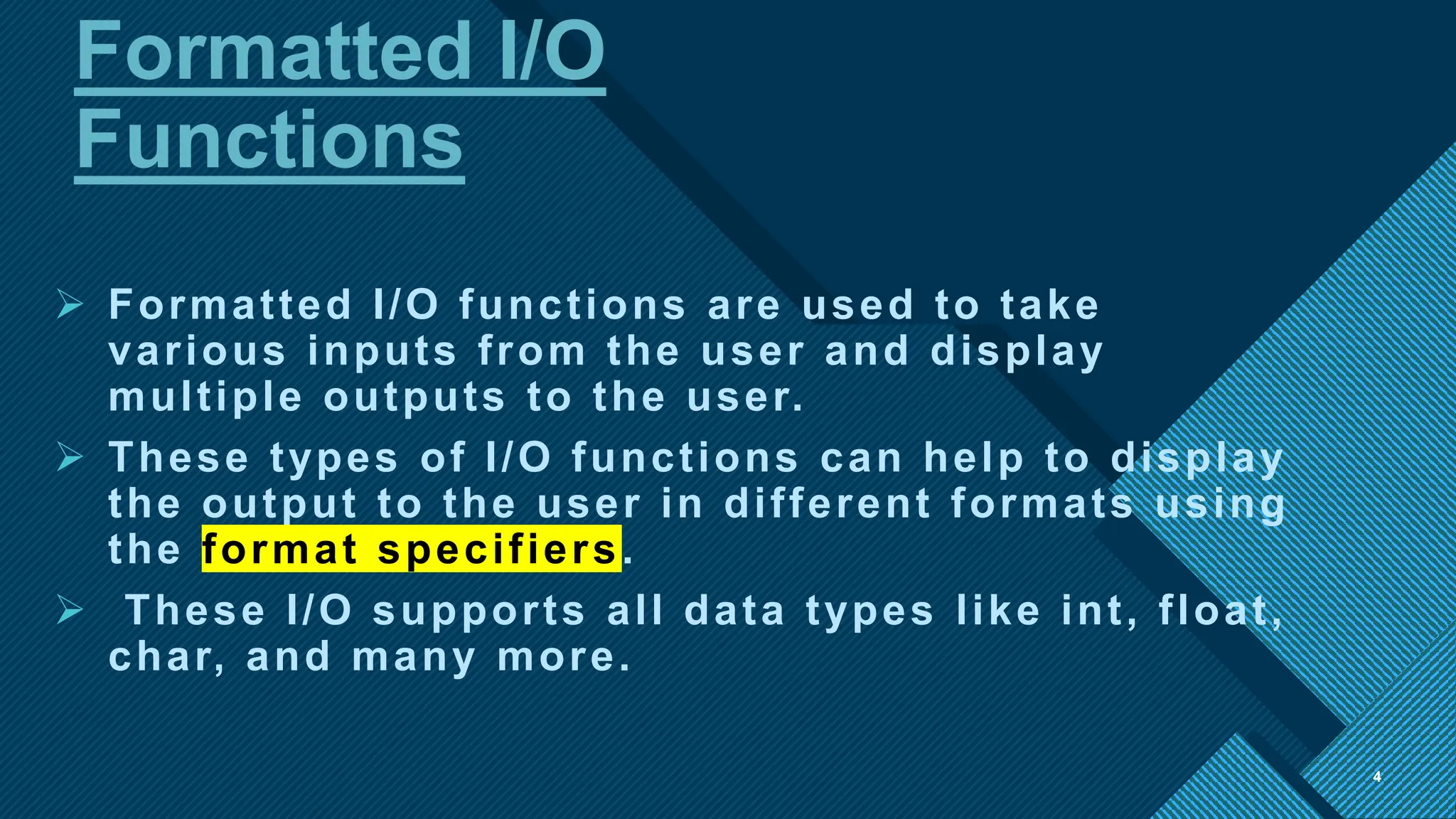
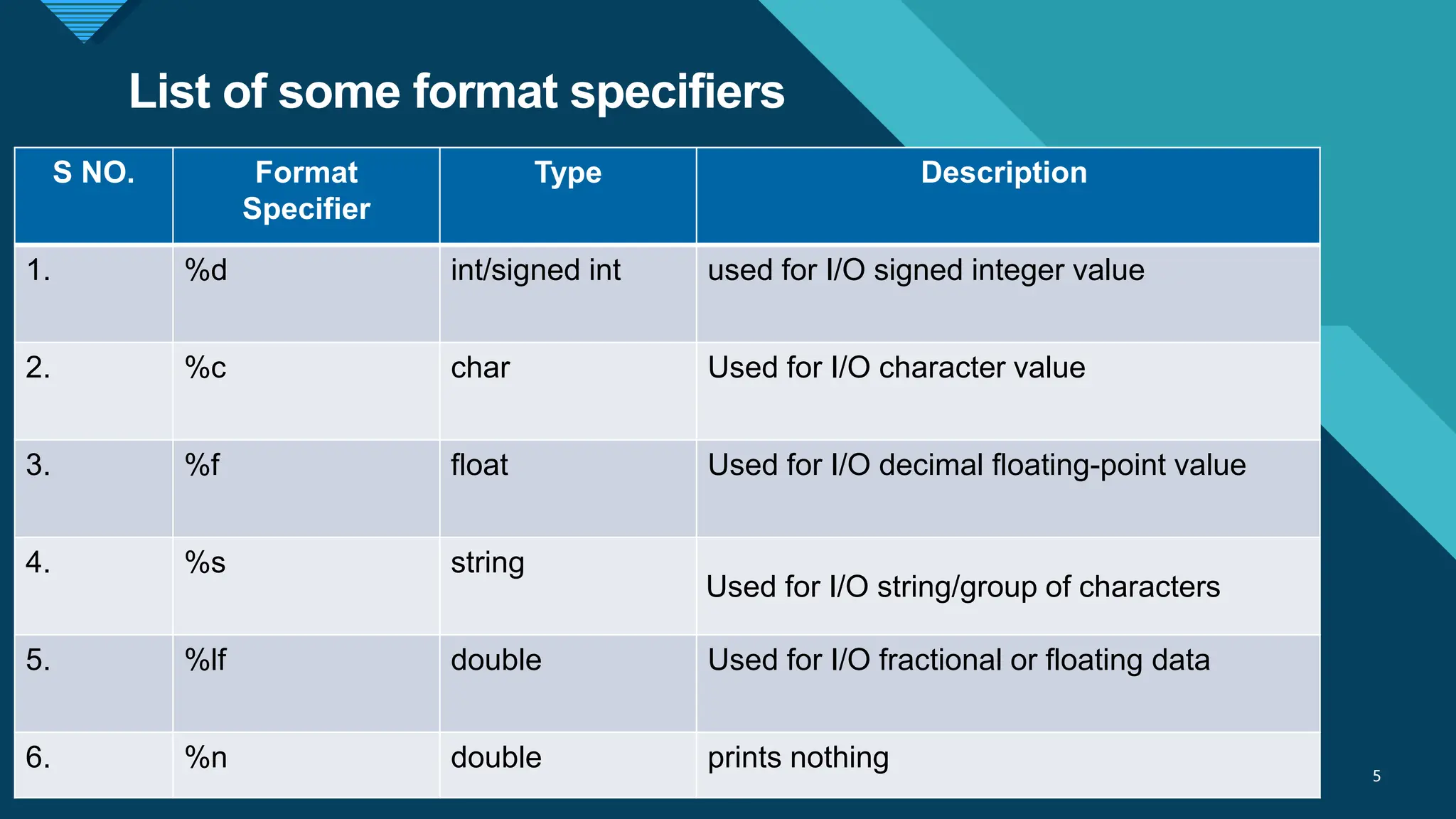
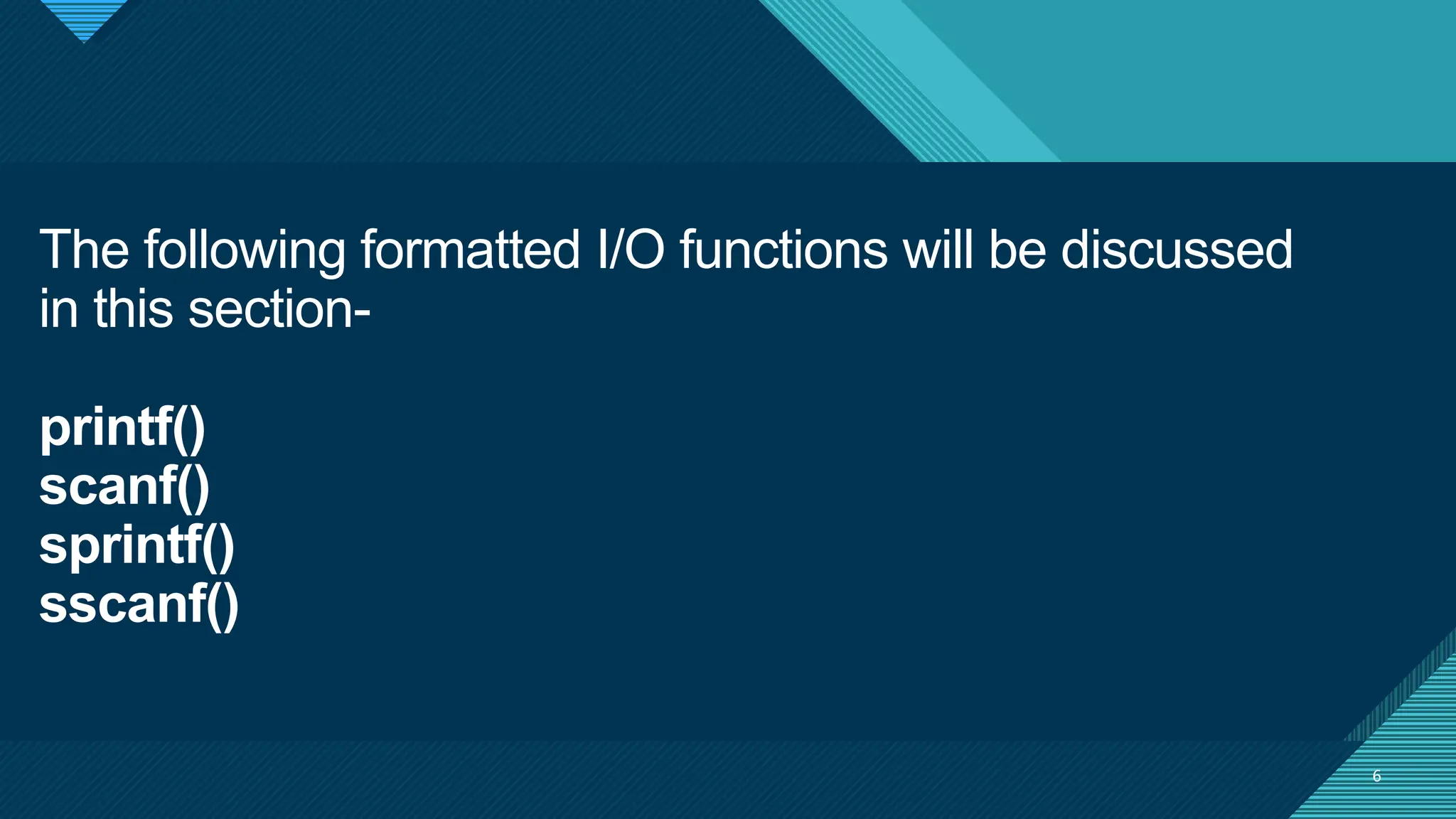
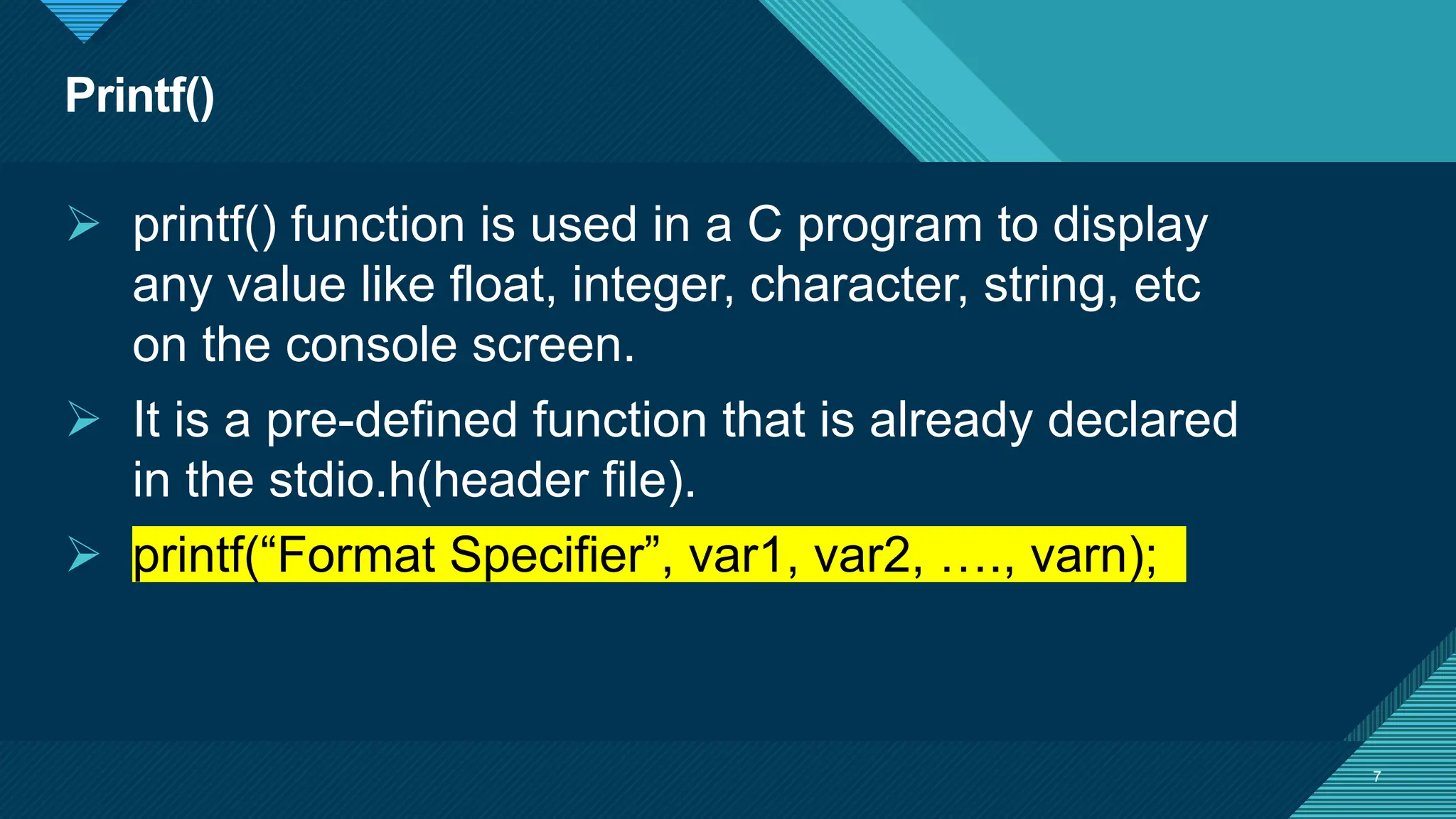
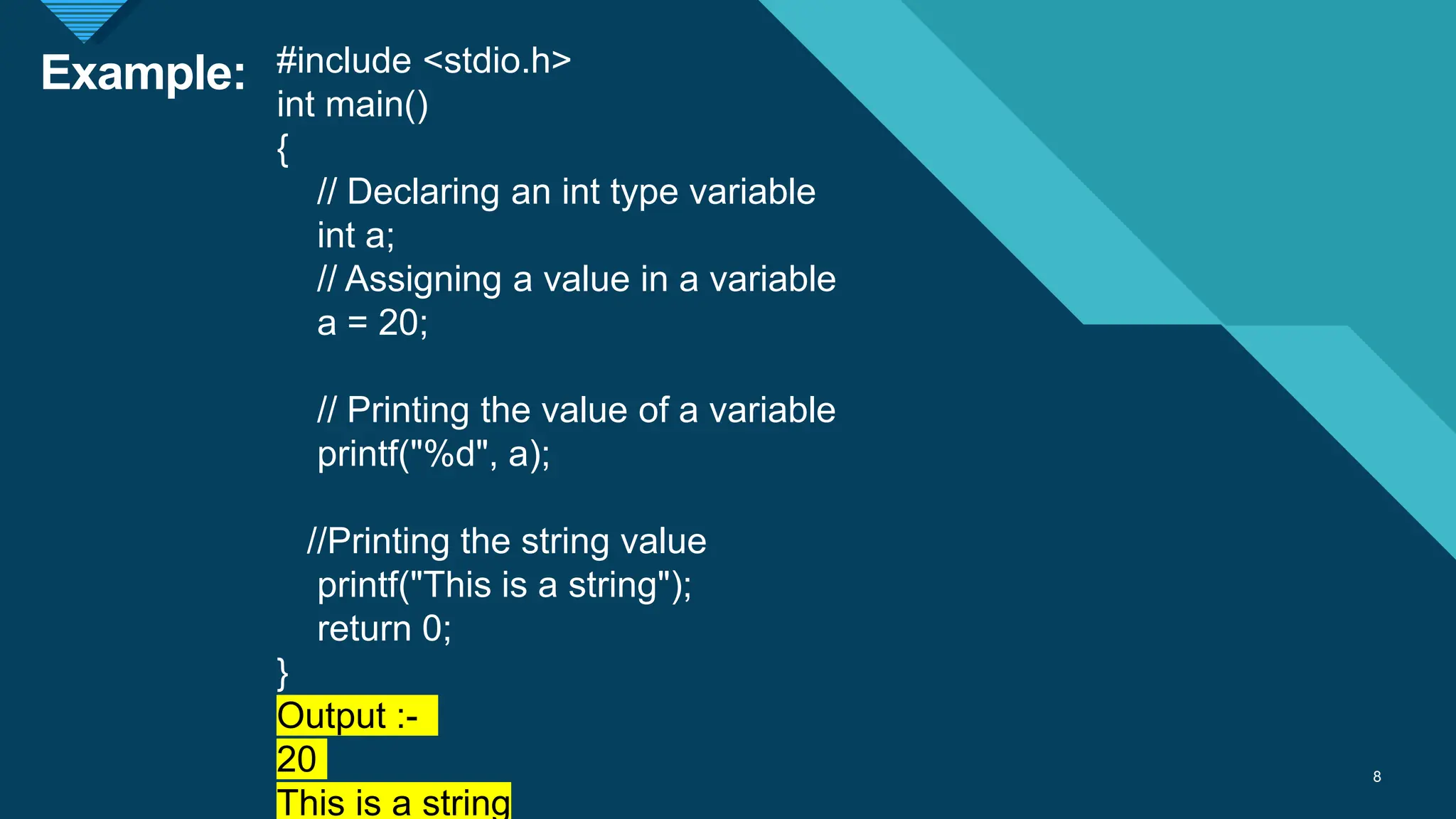
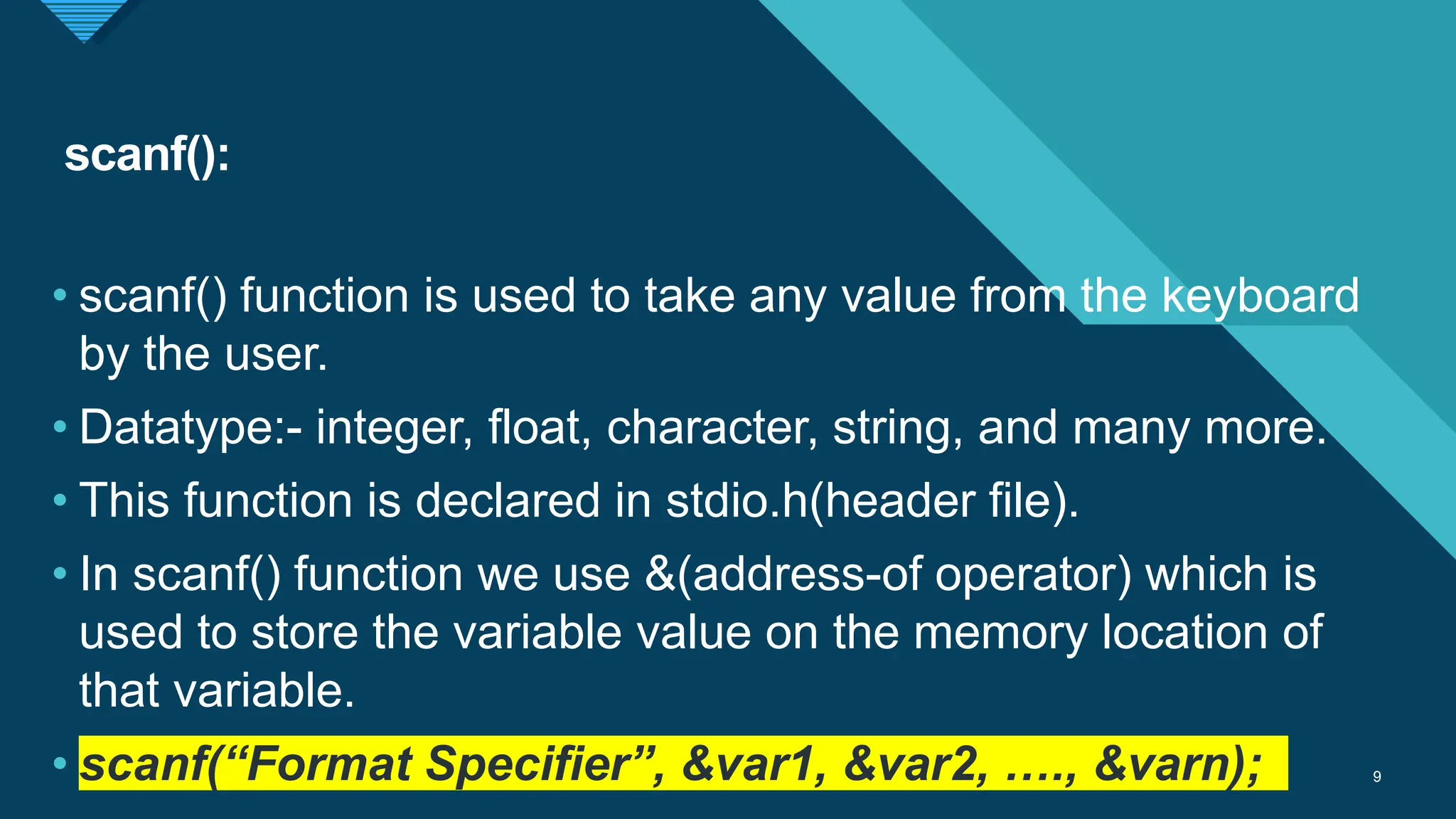
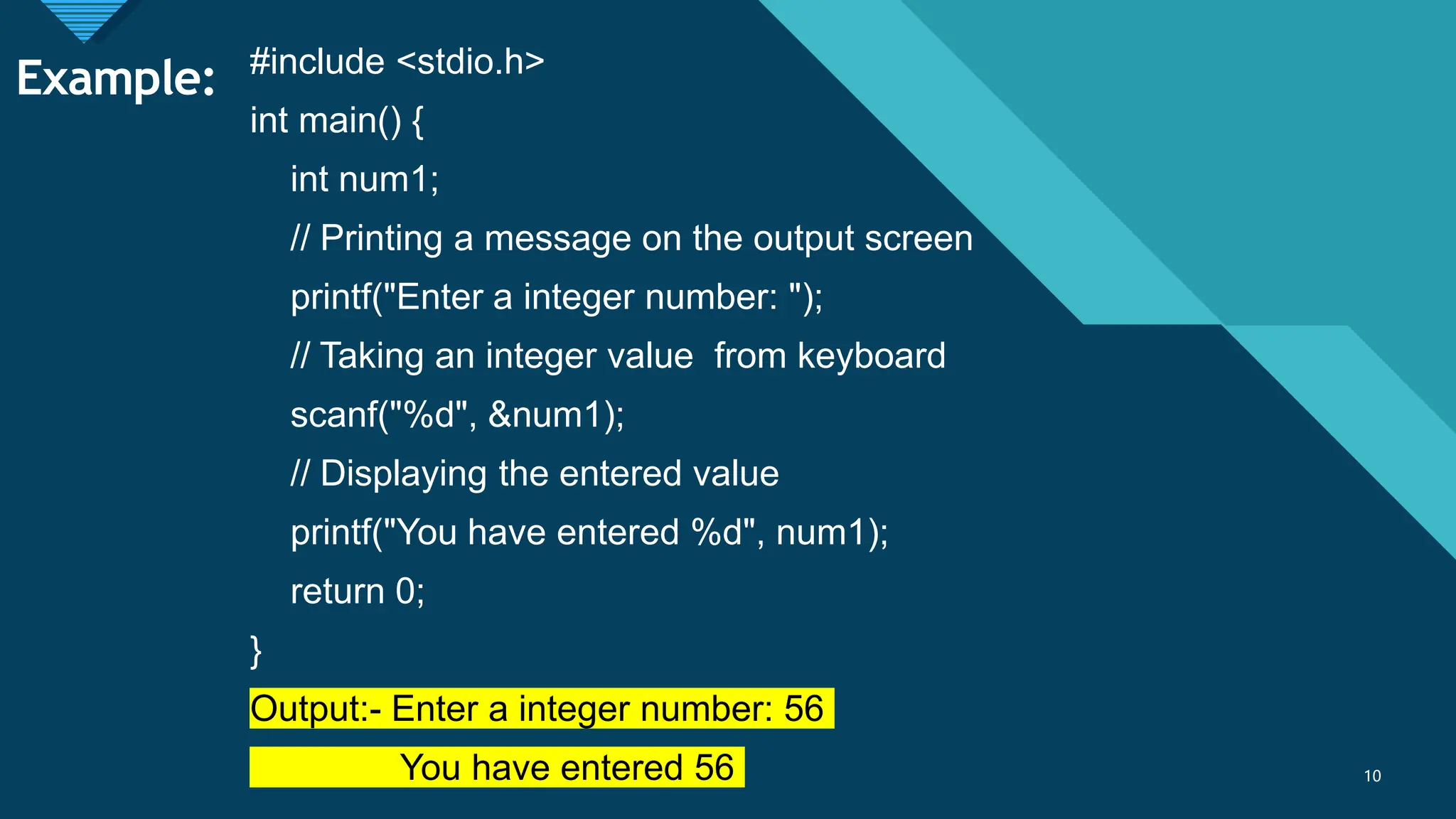
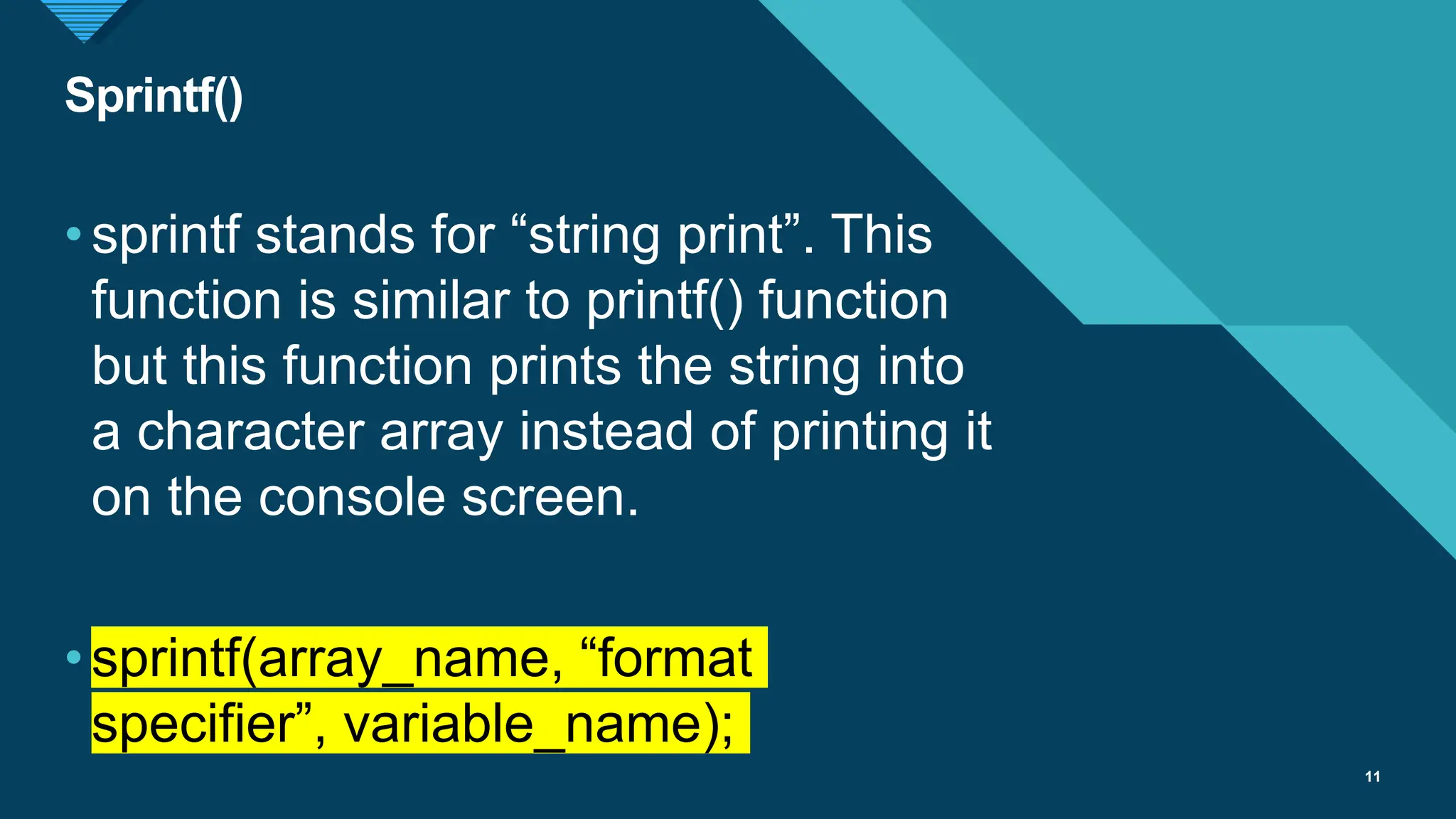
![Click to edit Master title style
12
#include <stdio.h>
int main()
{
char str[50];
int a = 2, b = 8;
// The string "2 and 8 are even number" is now stored into str
sprintf(str, "%d and %d are even number", a, b);
// Displays the string
printf("%s", str);
return 0;
}
Output:- 2 and 8 are even number
12
Example:](https://image.slidesharecdn.com/i-ofunctioninc-240704101404-5e56d8f5/75/Input-Output-function-in-c-programing-language-pptx-12-2048.jpg)
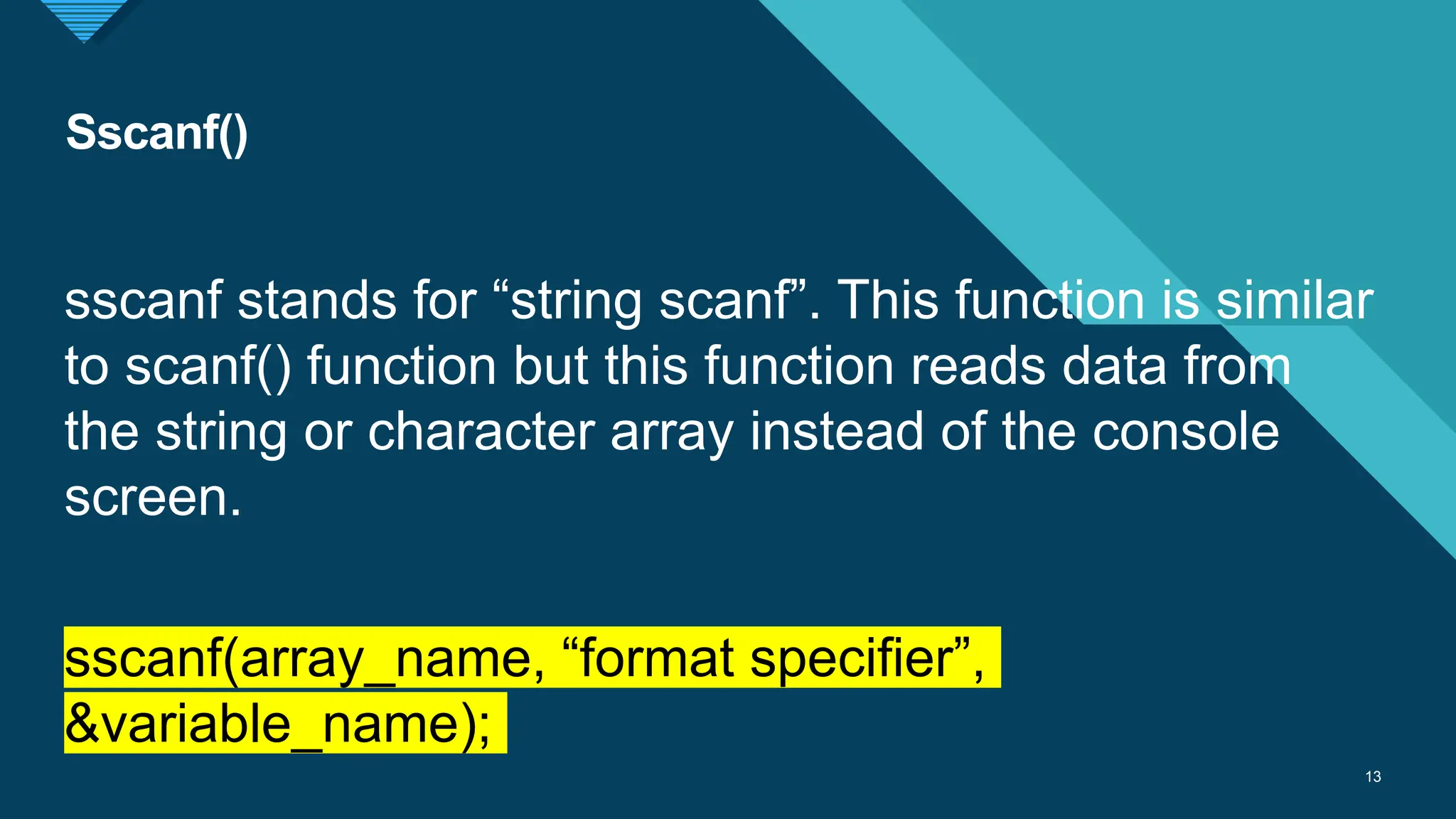
![Click to edit Master title style
14
#include <stdio.h>
int main() {
char str[50];
int a = 2, b = 8, c, d;
// The string "a = 2 and b = 8" is now stored into str
// character array
sprintf(str, "a = %d and b = %d", a, b);
// The value of a and b is now in c and d
sscanf(str, "a = %d and b = %d", &c, &d);
// Displays the value of c and d
printf("c = %d and d = %d", c, d);
return 0;
}
Output
c = 2 and d = 8
14
Example:](https://image.slidesharecdn.com/i-ofunctioninc-240704101404-5e56d8f5/75/Input-Output-function-in-c-programing-language-pptx-14-2048.jpg)
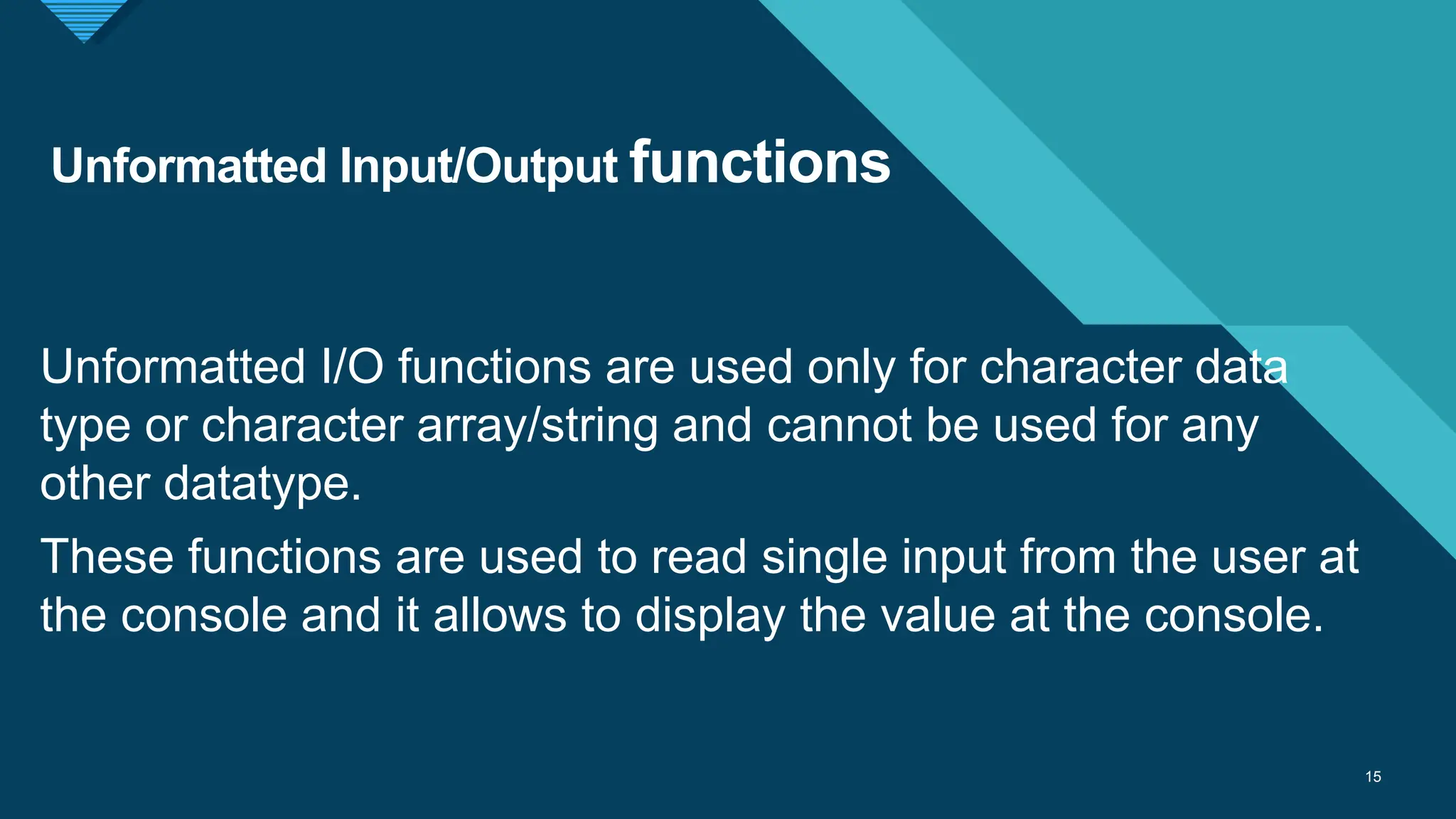
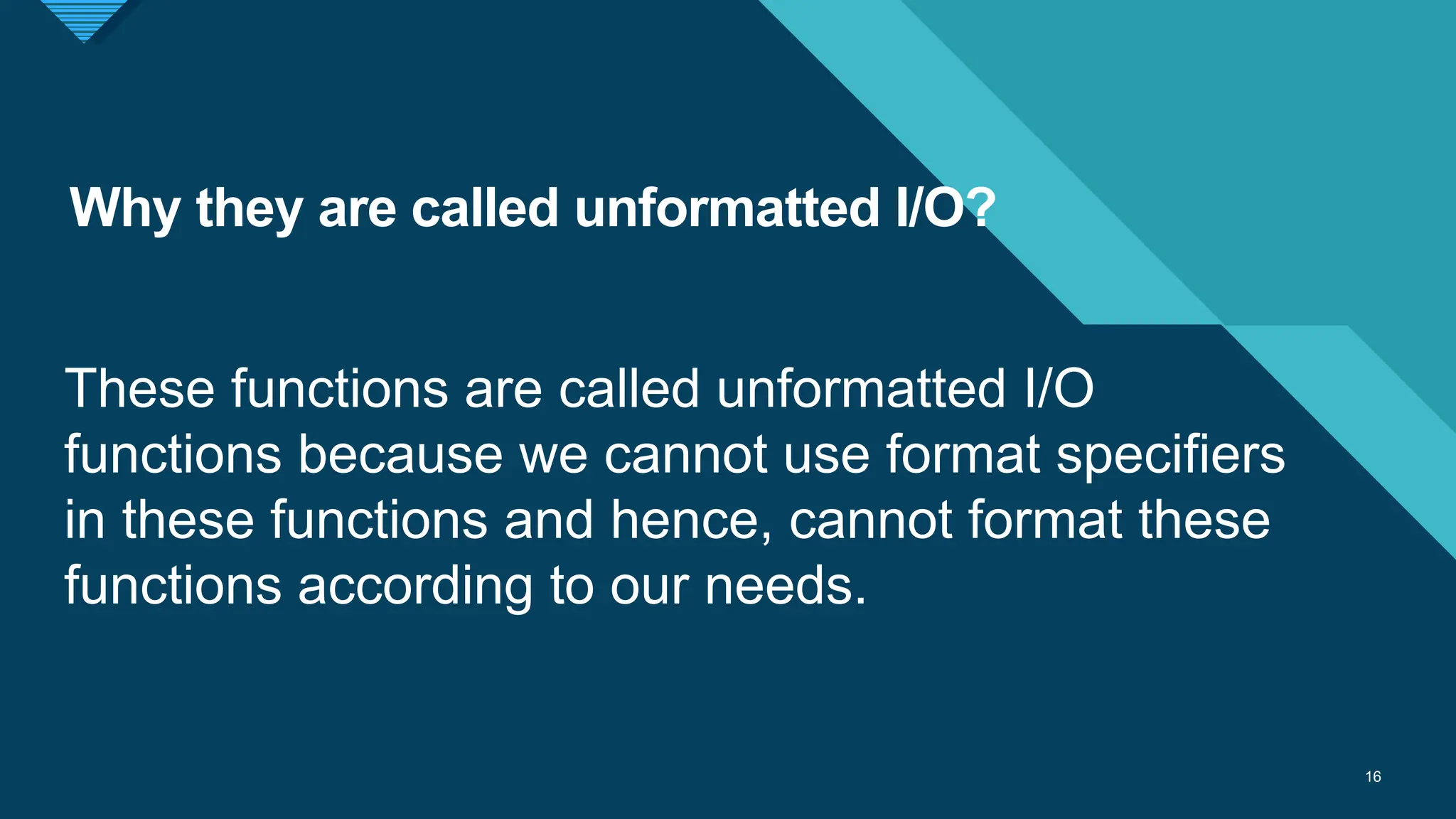
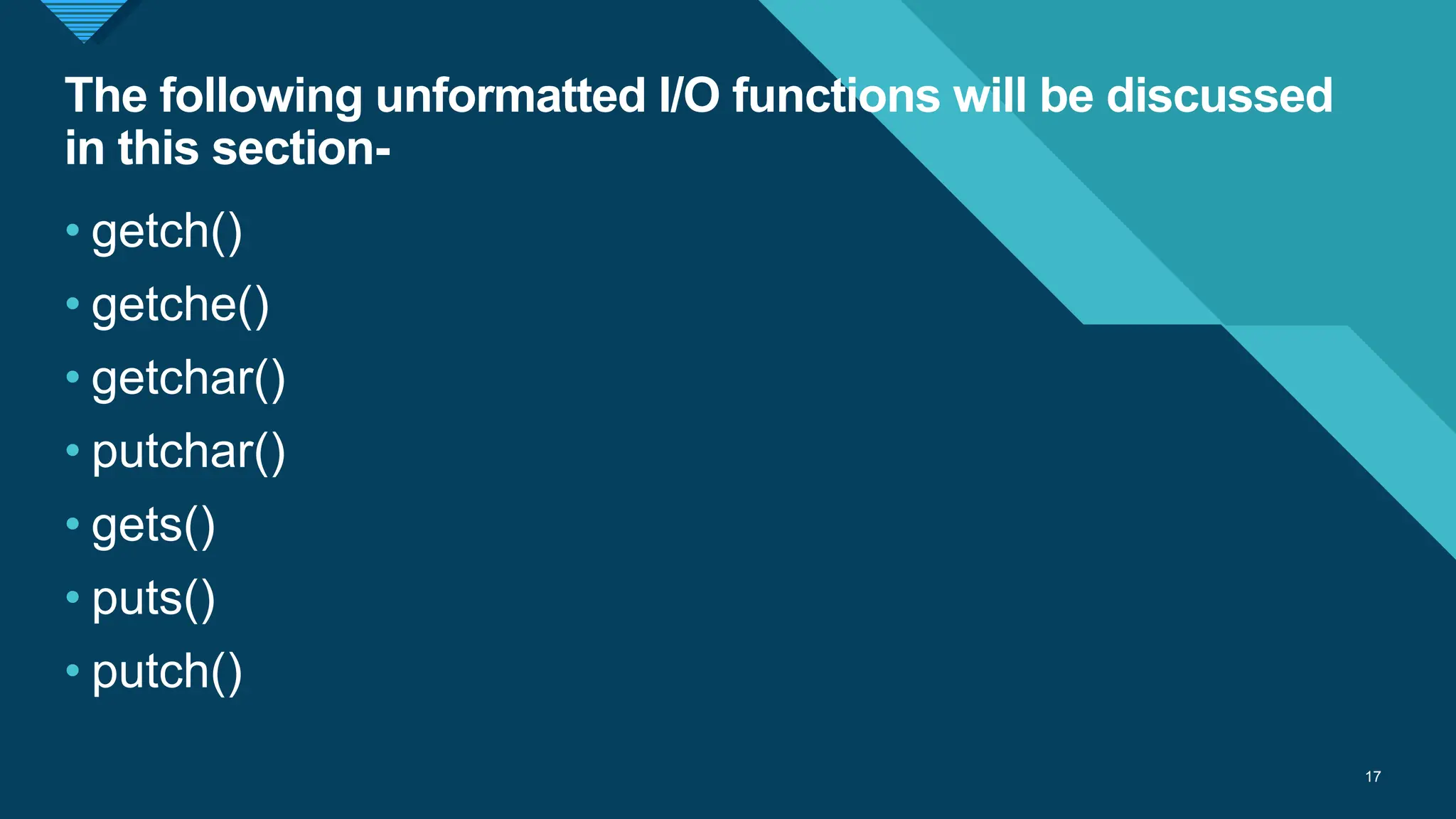

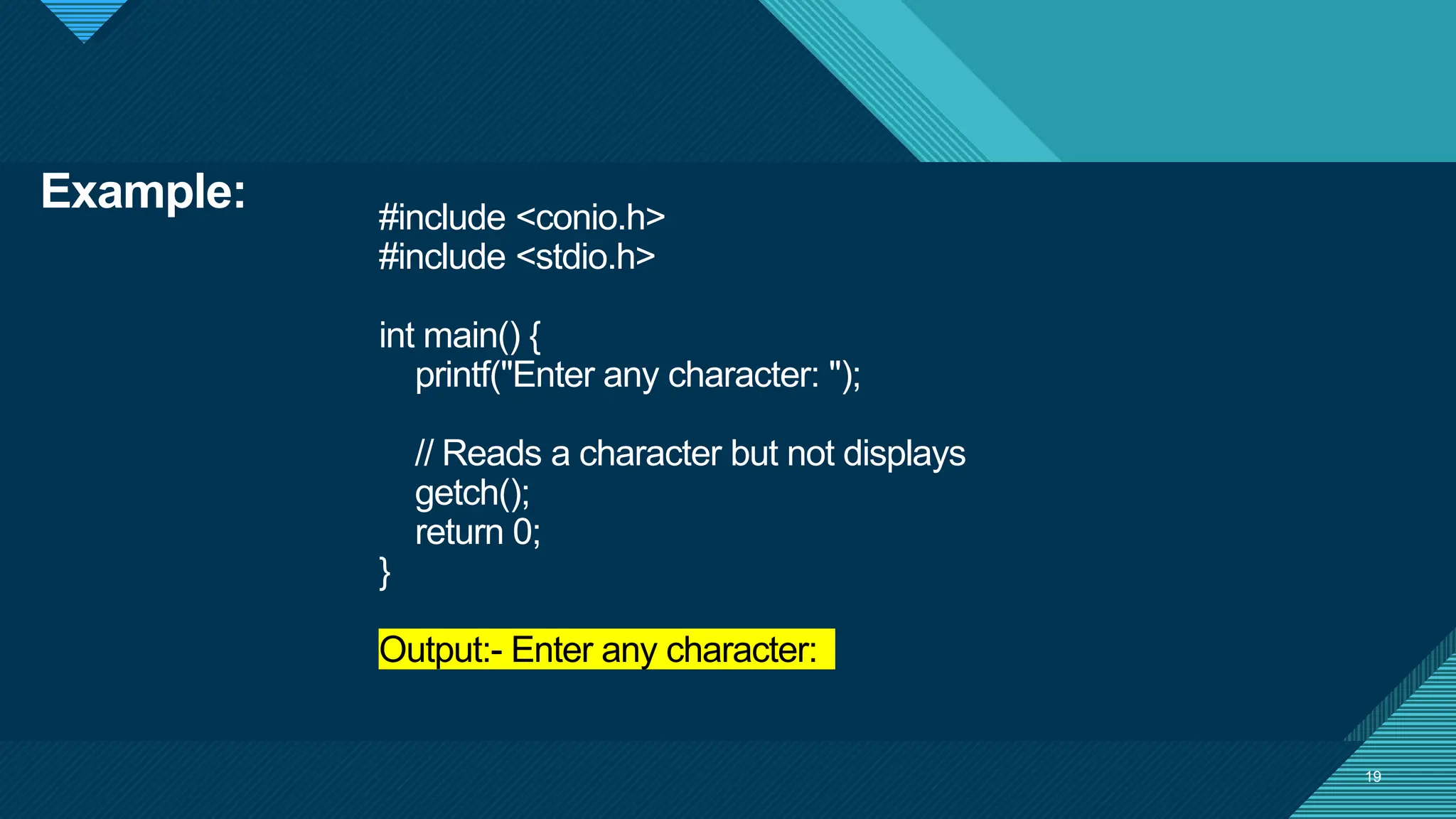
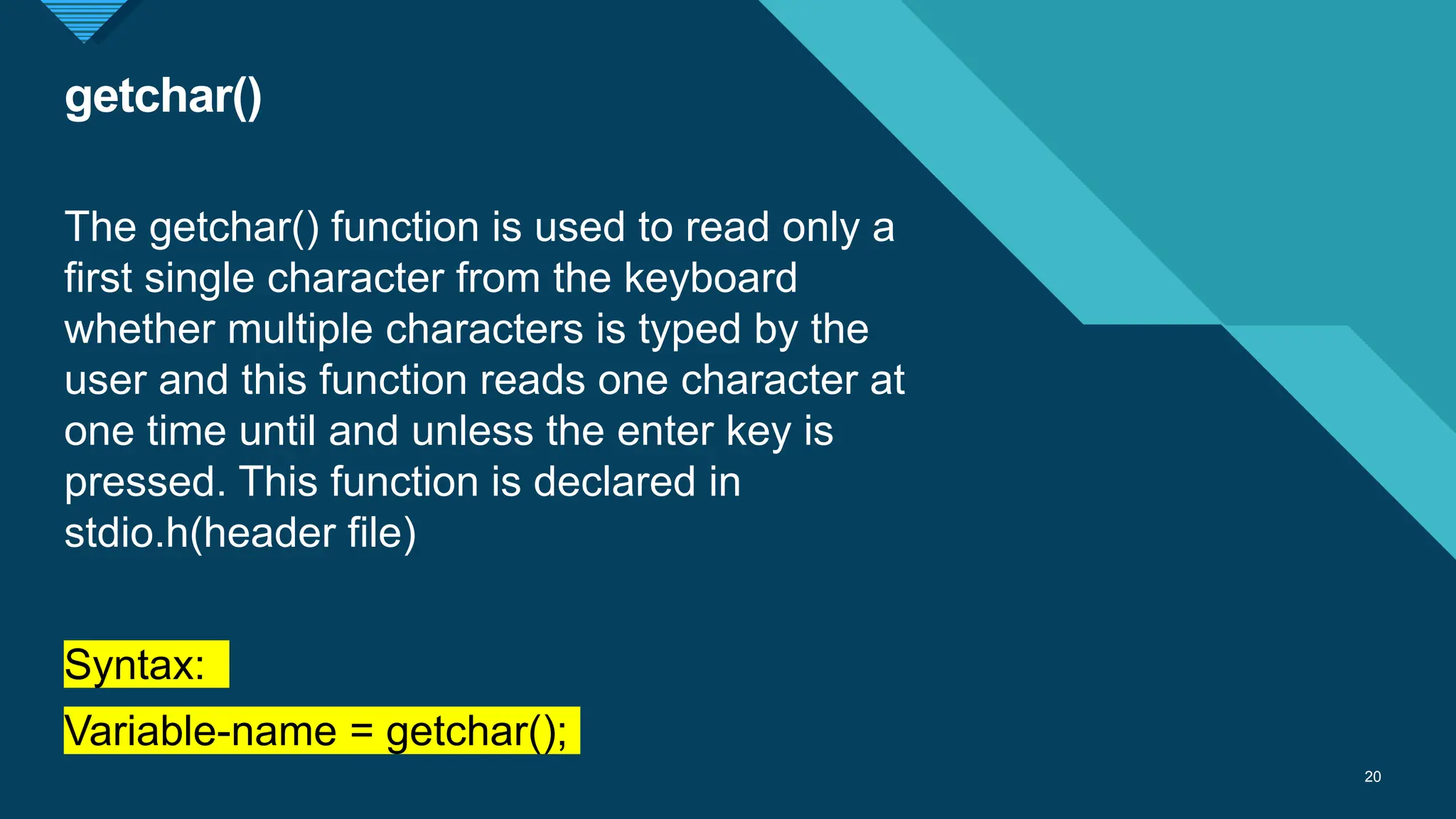
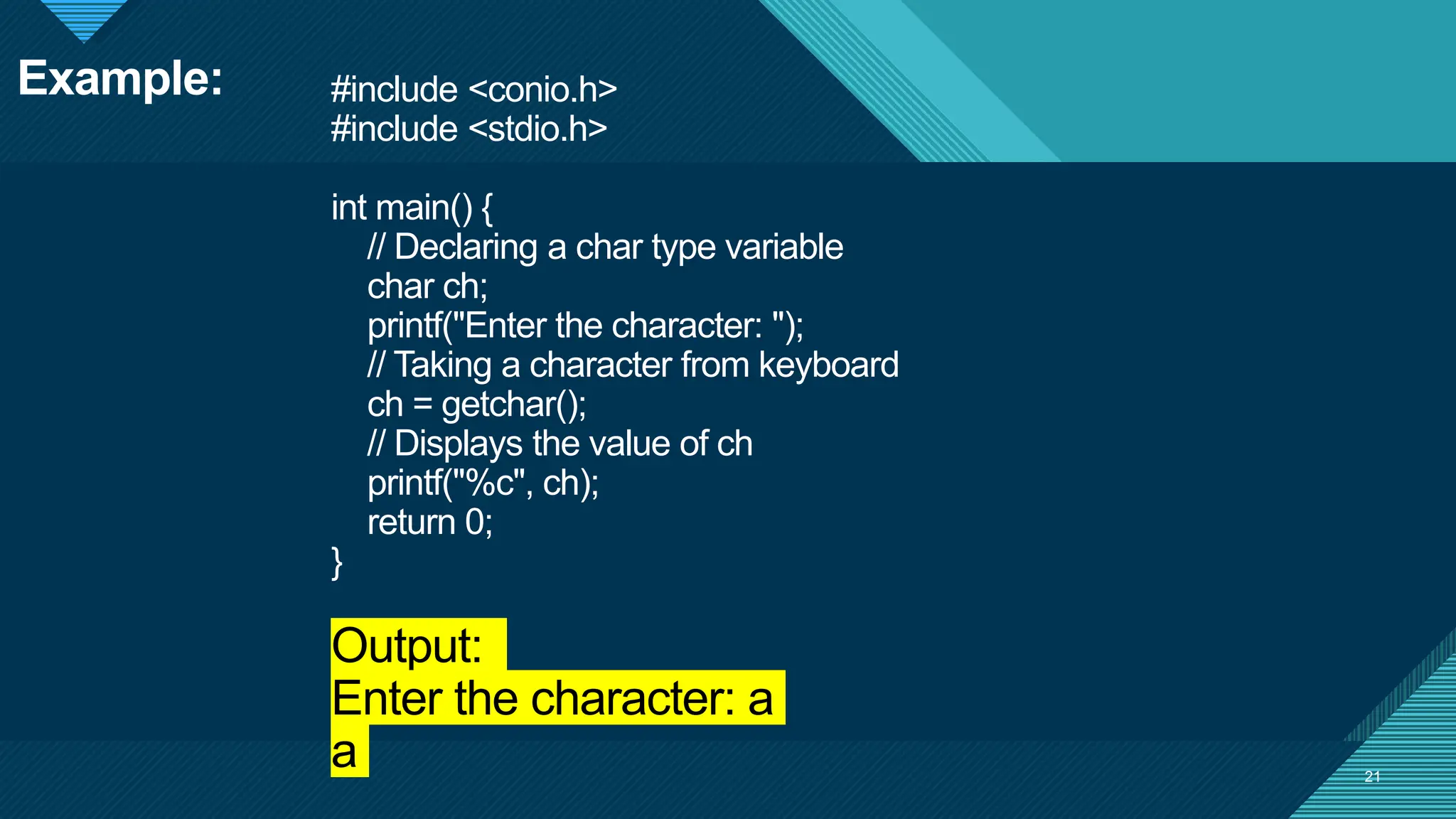
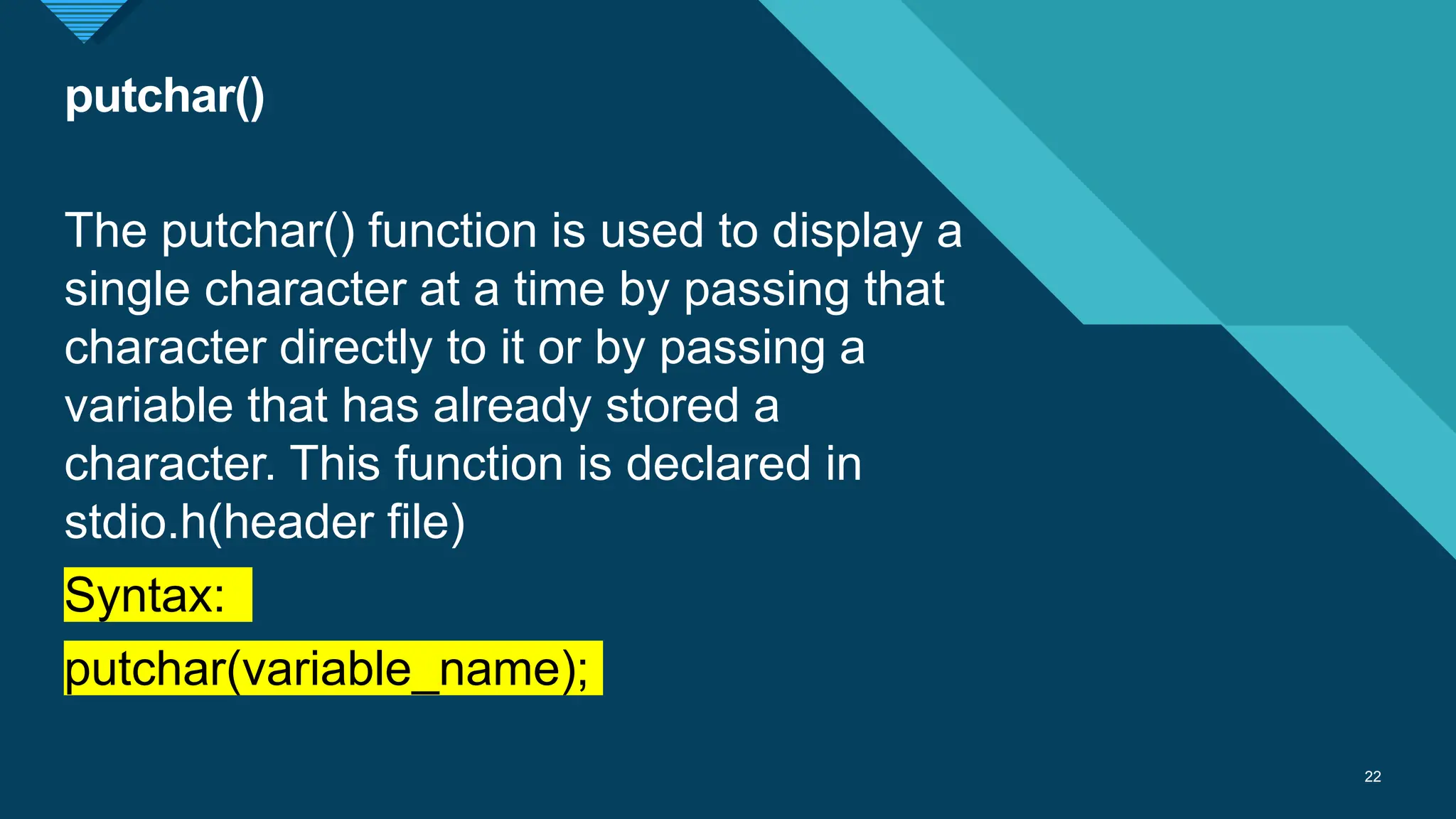

![Click to edit Master title style
24
gets()
24
gets() function reads a group of characters or strings from
the keyboard by the user and these characters get stored in
a character array. This function allows us to write space-
separated texts or strings. This function is declared in
stdio.h(header file).
Syntax:
char str[length of string in number]; //Declare a char type
variable of any length
gets(str);](https://image.slidesharecdn.com/i-ofunctioninc-240704101404-5e56d8f5/75/Input-Output-function-in-c-programing-language-pptx-24-2048.jpg)
![Click to edit Master title style
25
#include <conio.h>
#include <stdio.h>
int main() {
// Declaring a char type array of length 50
characters
char name[50];
printf("Please enter some texts: ");
// Reading a line of character or a string
gets(name);
// Displaying this line of character or a string
printf("You have entered: %s", name);
return 0;
}
Output: Please enter some texts: the gets() function
You have entered: the gets() function
25
Example:](https://image.slidesharecdn.com/i-ofunctioninc-240704101404-5e56d8f5/75/Input-Output-function-in-c-programing-language-pptx-25-2048.jpg)
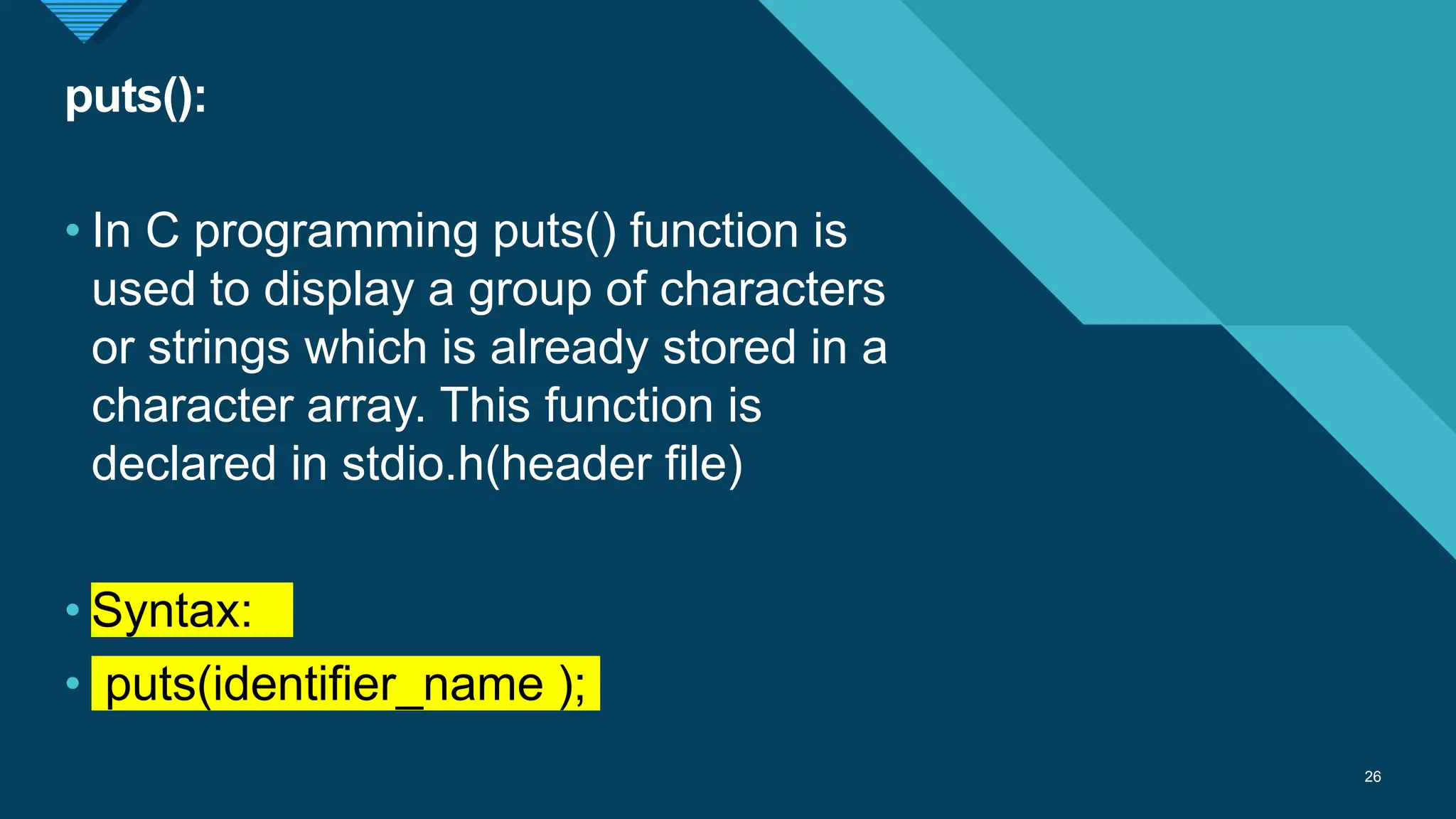
![Click to edit Master title style
27
#include <stdio.h>
int main() {
char name[50];
printf("Enter your text: ");
// Reads string from user
gets(name);
printf("Your text is: ");
// Displays string
puts(name);
return 0;
}
Output: Enter your text: the puts() function
Your text is: the puts() function 27
Example:](https://image.slidesharecdn.com/i-ofunctioninc-240704101404-5e56d8f5/75/Input-Output-function-in-c-programing-language-pptx-27-2048.jpg)
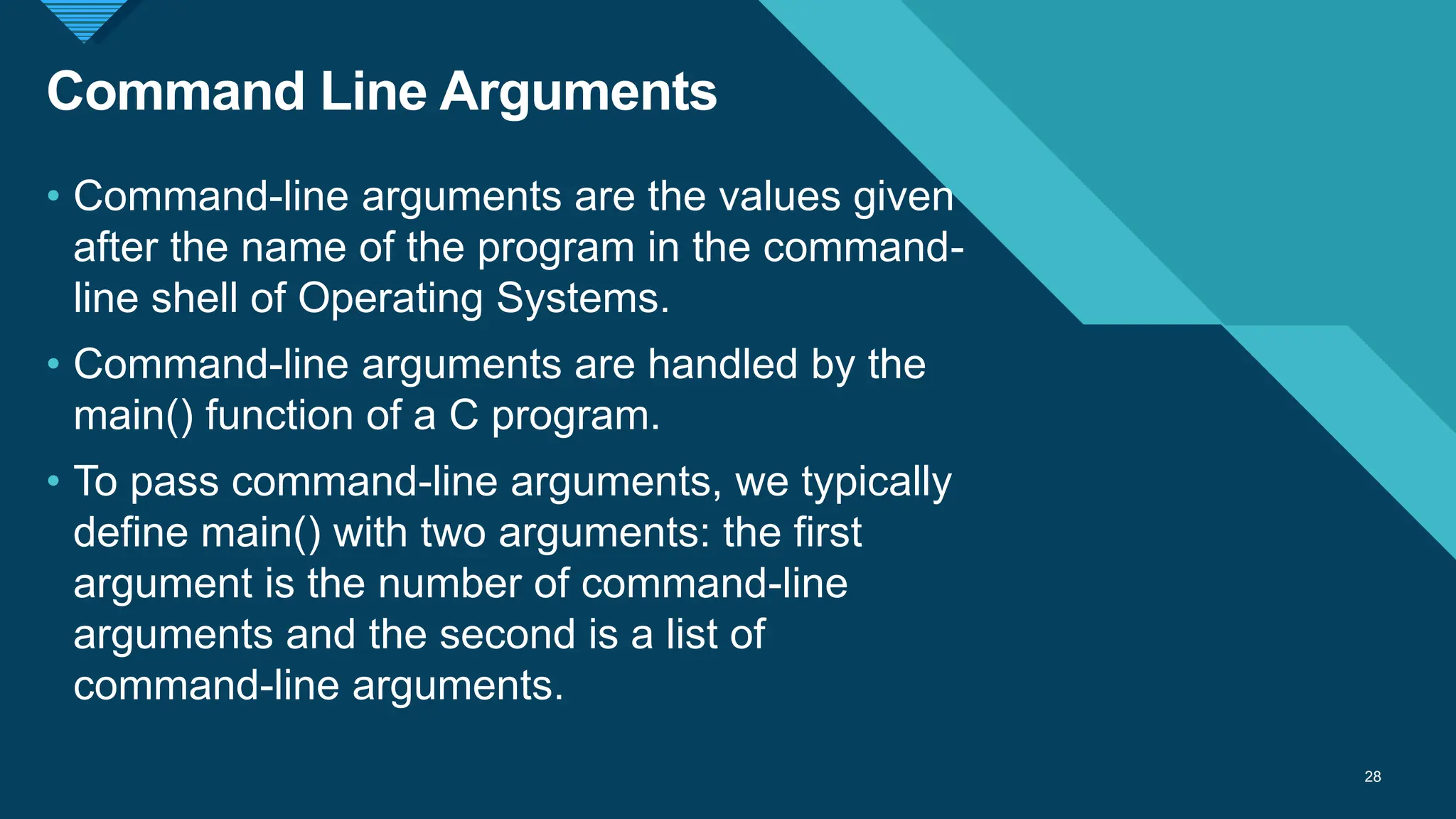
![Click to edit Master title style
29
#include <stdio.h>
int main(int argc, char* argv[])
{
printf("Program name is: %s", argv[0]);
if (argc == 1)
printf("nNo Extra Command Line Argument Passed Other Than
Program Name");
if (argc >= 2) {
printf("nNumber OfArguments Passed: %d", argc);
printf("n----Following Are The Command Line Arguments Passed----
");
for (int i = 0; i < argc; i++)
printf("nargv[%d]: %s", i, argv[i]);
}
return 0;
}
Output:- Program Name Is: ./a.out
Number OfArguments Passed: 4
----Following Are The Command Line Arguments Passed----
argv[0]: ./a.out
argv[1]: First
argv[2]: Second
29
Example:](https://image.slidesharecdn.com/i-ofunctioninc-240704101404-5e56d8f5/75/Input-Output-function-in-c-programing-language-pptx-29-2048.jpg)
